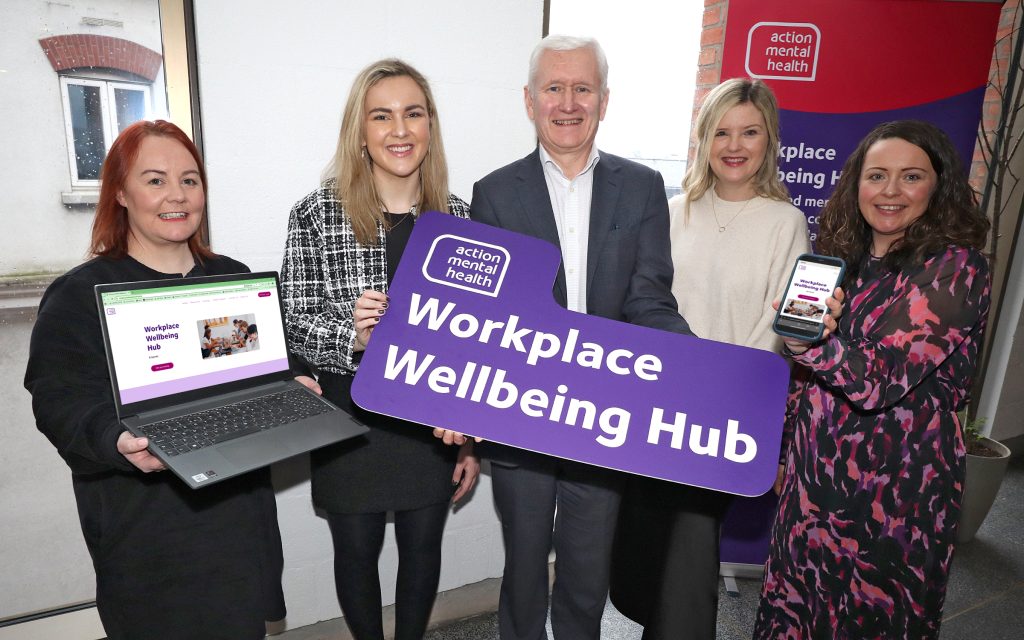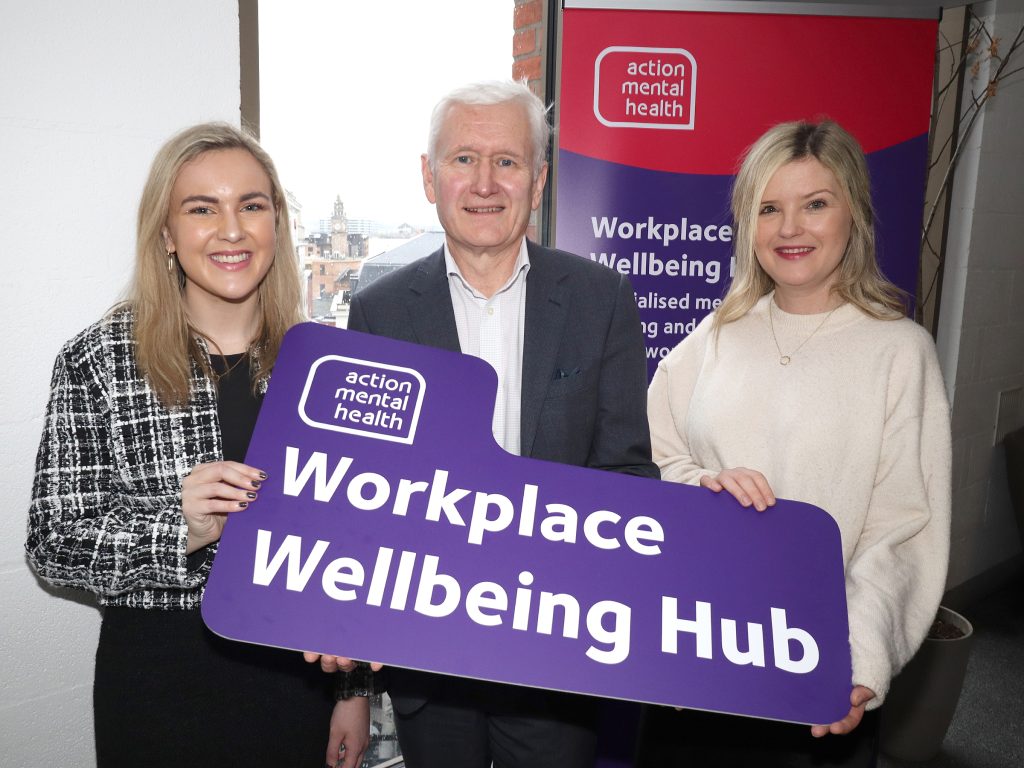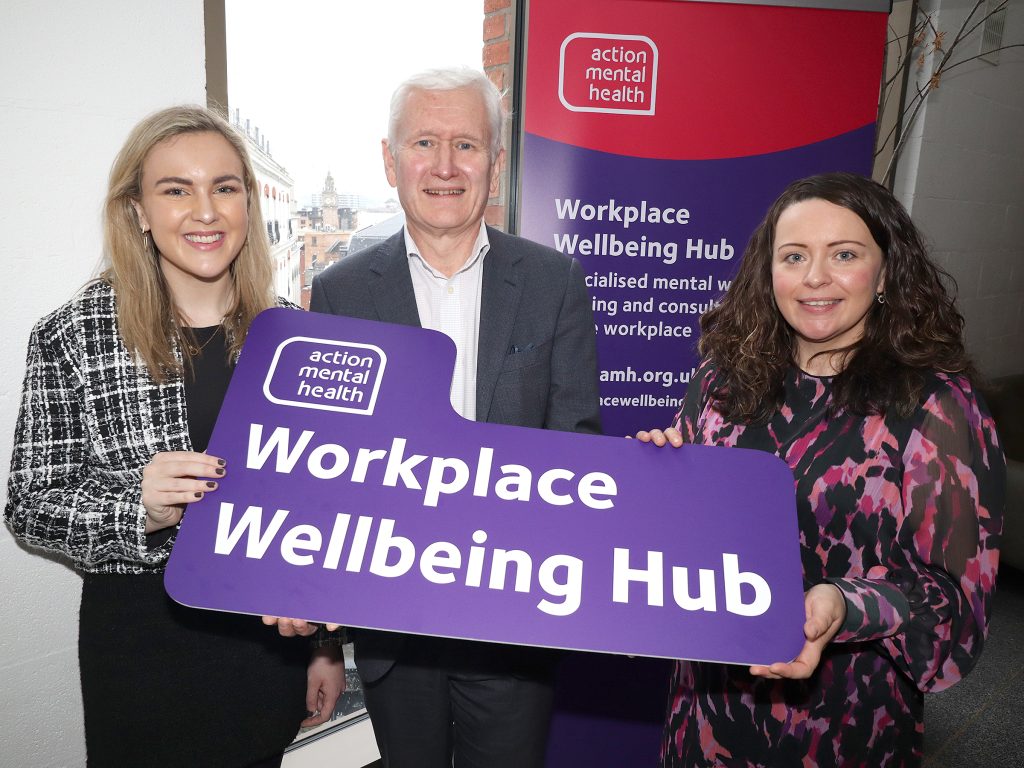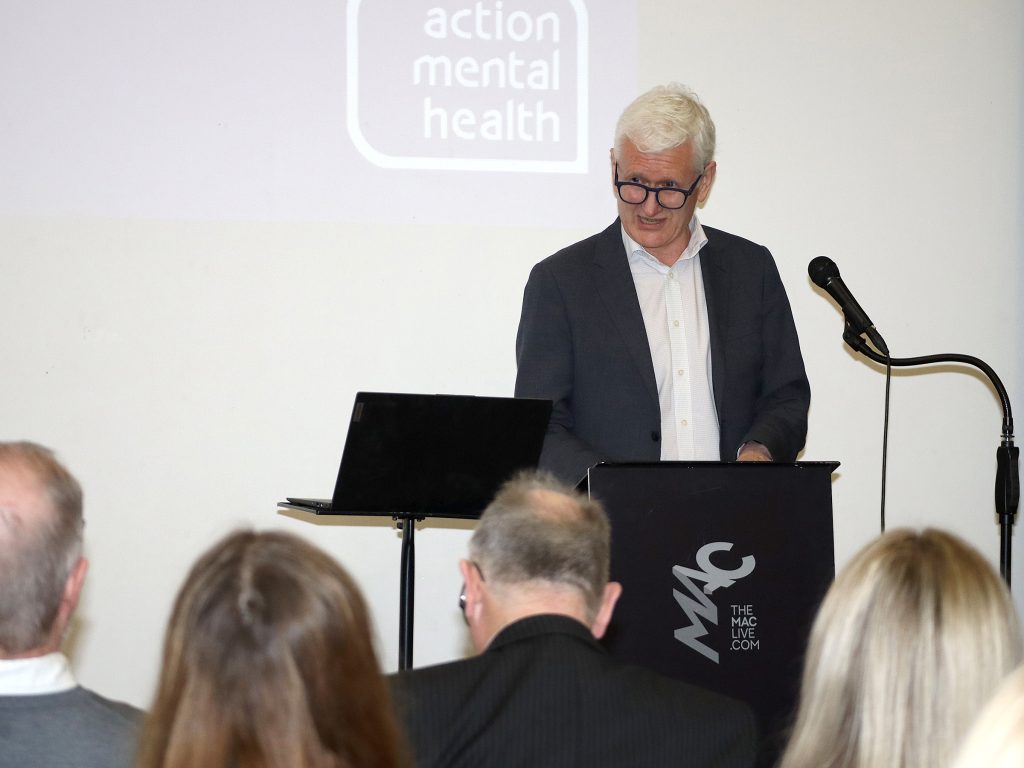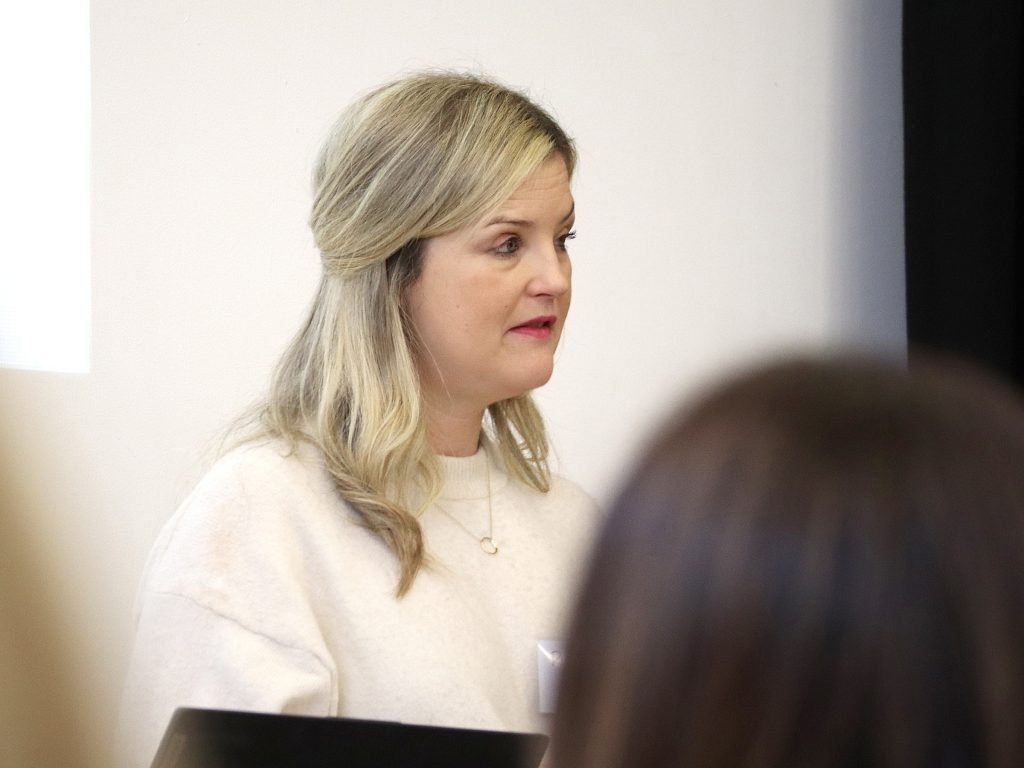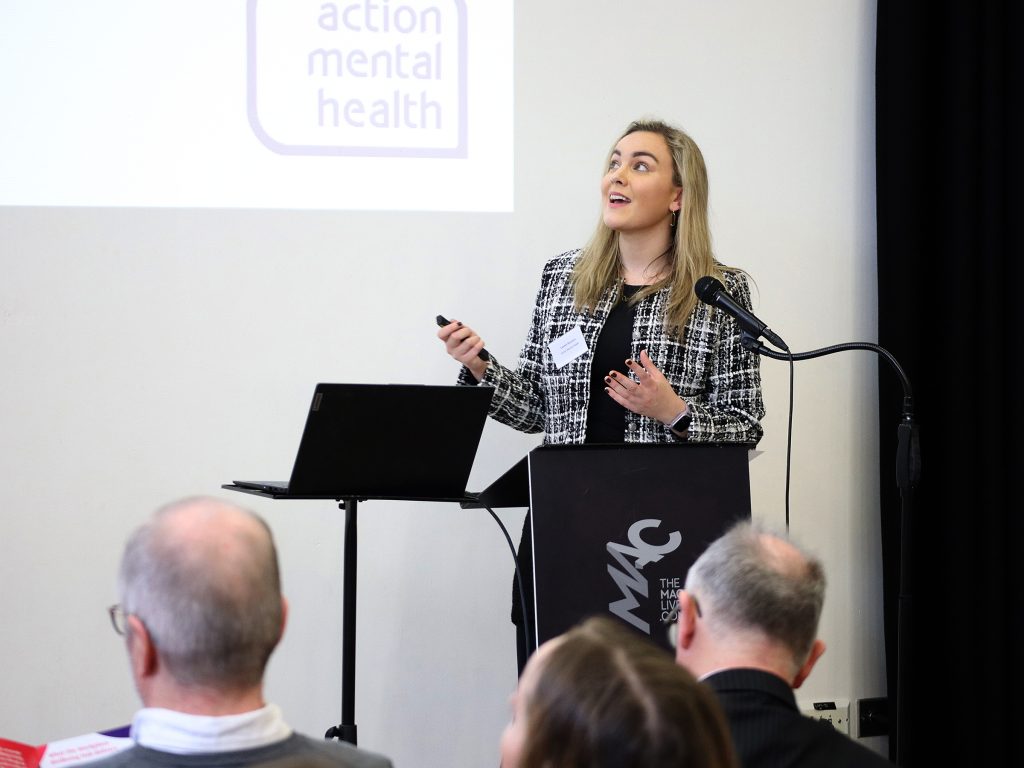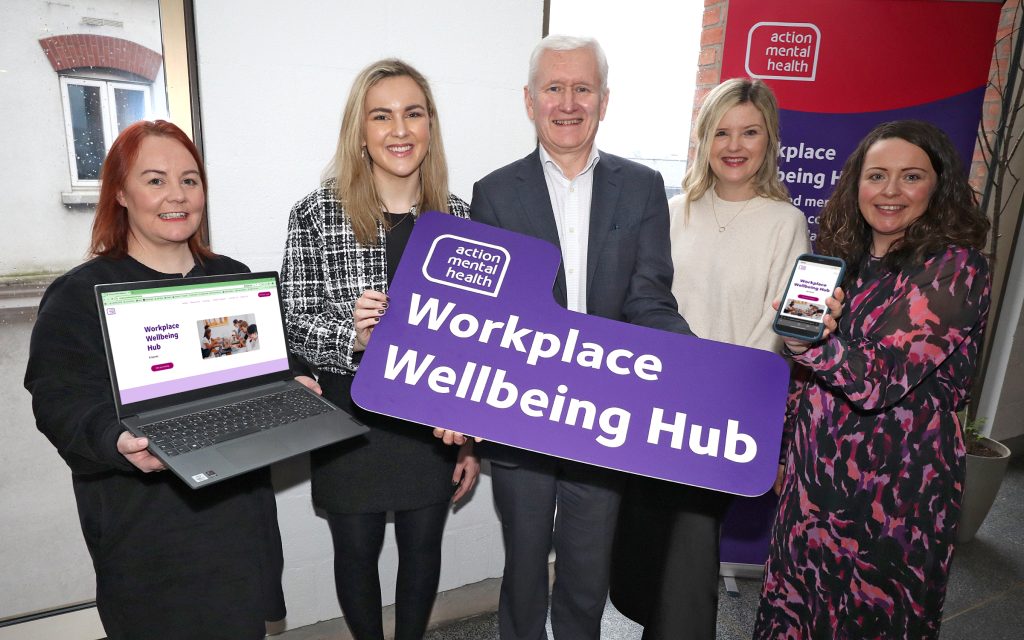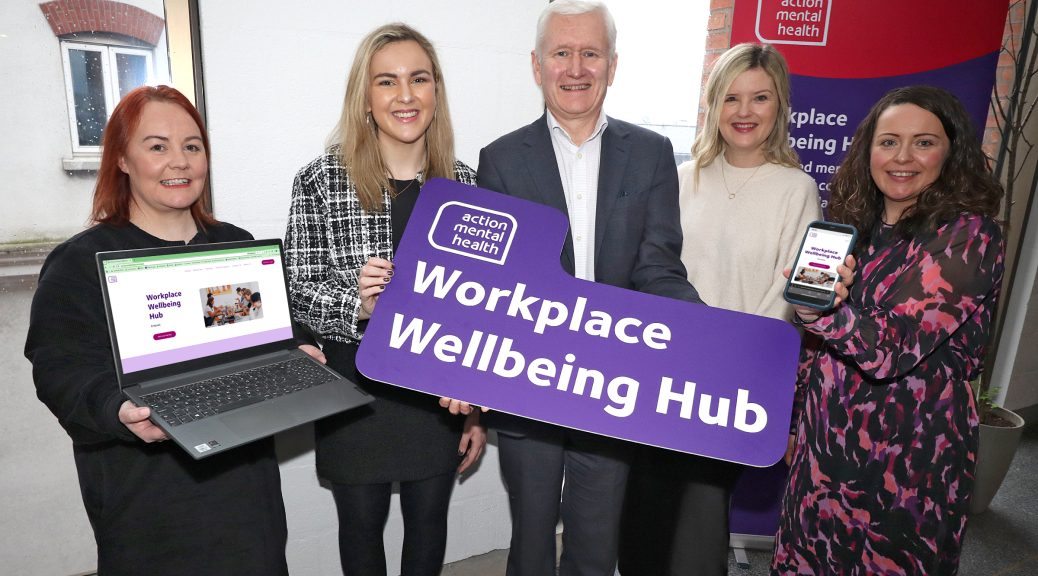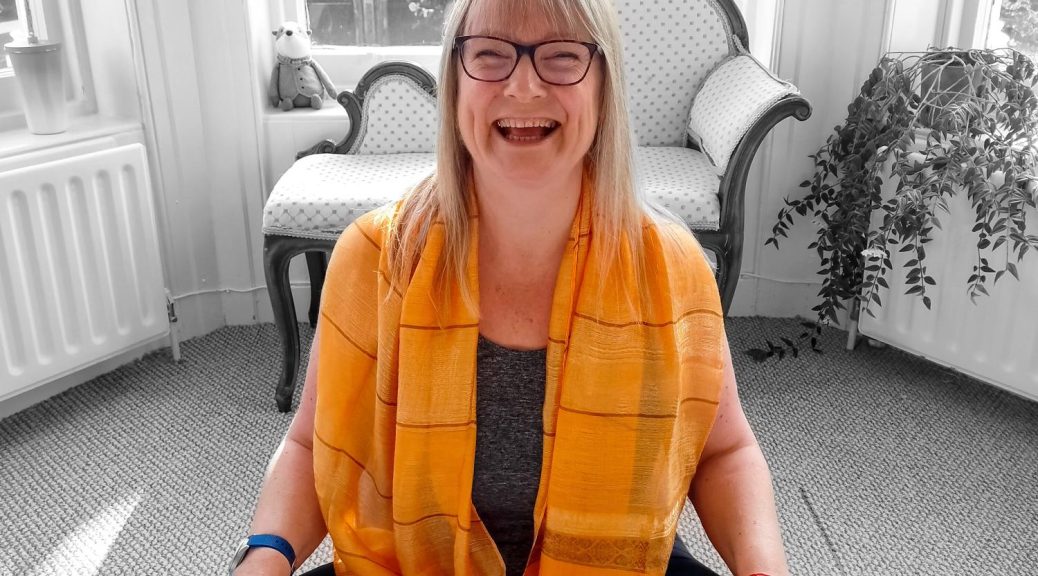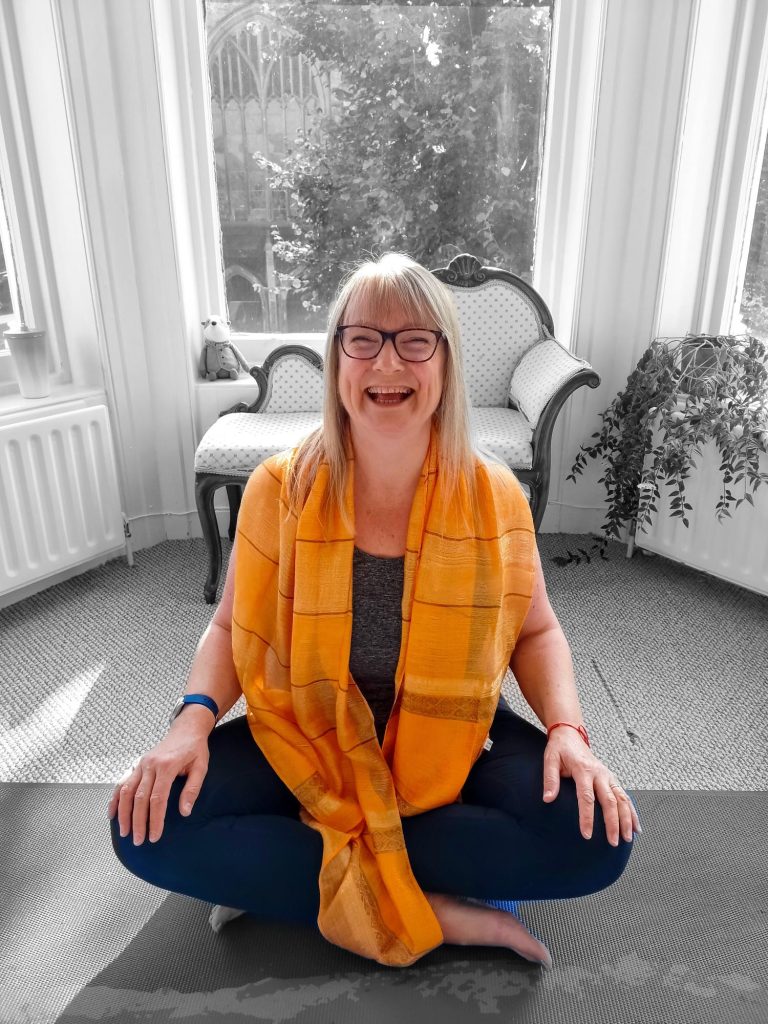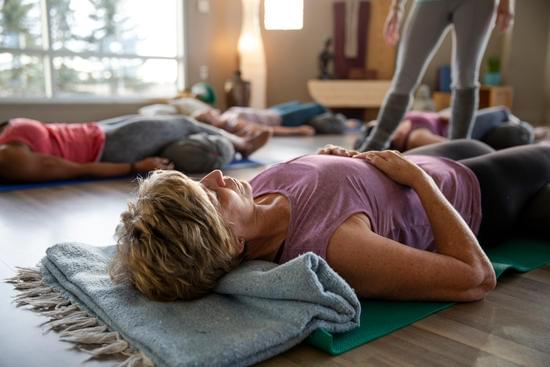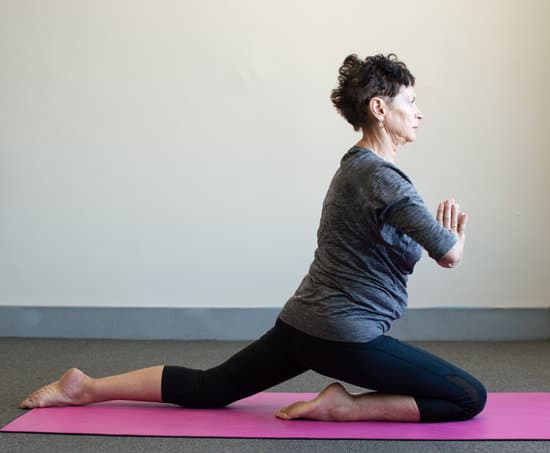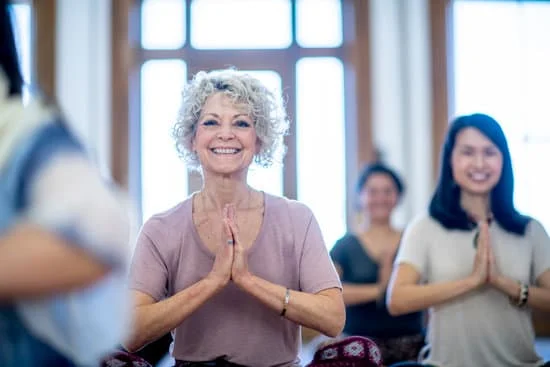With October marking Menopause Awareness Month, we’ve been speaking to various women who are all raising awareness of the menopause and helping other women navigate this significant stage of their lives. Having previously featured Dr Siobhan Kirk, along with Roisin Hillman from the Menopause Together charity and Siobhan Kearney from Menopause NI, our final blog as part of Menopause Month is with local yoga instructor, Lisa Copeland.
Specifically trained in menopause-specific yoga – and with 20 years general yoga teaching experience – Lisa explained how yoga can help to alleviate perimenopause and menopausal symptoms, both physical and mental.
“I think yoga always helps women – it helps everybody,” she said. “It has certainly been the anchor I needed. What the menopause yoga course does is it gives women the tools that they need to manage each stage of the menopause.”
According to research carried out by Abiç and Yilmaz Vefikuluçay (2024), the psychological, somatic and urogenital symptoms of menopause may be reduced by yoga. Their findings came from a randomised control study which focused on menopausal women aged between 40-60 years old who completed 60 minutes of yoga twice a week for 10 weeks.
Meanwhile, Petra Coveney, whom Lisa trained under and who created the world’s first accredited yoga and wellbeing programme for women experiencing menopause in 2013 – Menopause Yoga™️ – says the following on her website:
“Yoga is scientifically proven to reduce stress and inflammation, which exacerbates many menopause symptoms such as anxiety, hot flushes, joint and muscle pain. Yoga may also help with sleep, digestion, fatigue, general mental health and may help prevent falls and fractures by developing posture, balance (proprioception), inner sensory awareness (interception) and muscle tone.”
With yoga for menopause increasingly popular amongst women, Lisa pointed out that it wasn’t something which would magically solve all menopause-related issues, but was best used alongside various lifestyle changes. These include things such as diet, weight training to increase bone density and potential HRT use – with regular reviews of what you’re doing the key to ensuring a holistic and more effective approach to managing symptoms.
“It’s important to consider the effect that low oestrogen has on the body during menopause,” she said. “According to the Royal Osteoporosis Society, one in two women over the age of 50 will break a bone due to poor bone health and replacing oestrogen, as well as making lifestyle changes, can help reduce this statistic. Cardiovascular health can also be affected during the menopause, as well as mental health.”
While the feedback has been incredibly positive from women who have attended Lisa’s yoga sessions, she said her initial motivation to become a menopause yoga teacher was very personal.
“I’m 55 years old now and I was going through the perimenopause in my late 40s but didn’t realise I was,” she said. “I hadn’t even heard of the word ‘perimenopause’. My own experience of this journey called menopause has been challenging and difficult. Yoga for menopause is a very specific course and Petra Coveney approaches this from a scientific and clinical basis, so when I saw the opportunity to do the course I just went for it.
“I came to it when I was post-hysterectomy, so I had been going through a very rough time, both physically and mentally. It was another aspect of my menopause journey. I did the course for myself first and then I thought I could decide if I wanted to share it. It was so beneficial to me.”
What to expect during menopause yoga classes
With the course for menopause yoga comprising four weeks, each session takes women through the key stages of the menopause journey, incorporating discussion, breathing techniques and modified yoga poses. There is also mindful meditation, while Lisa always signposts women to useful sources of information at the end of sessions, as well as providing healthy snacks and nutrition information.
She said that one of the first things women said about yoga for menopause was that it offered an inclusive and welcoming space where they felt safe and able to share aspects of their own journeys. Indeed, classes typically comprise 10-12 women and always begin with a shared conversation session, where attendees can discuss as much as they wish about their own peri/menopause experiences.
“It’s very helpful, that protection aspect of it, which helps with feelings of overwhelm and exhaustion,” said Lisa. “I’ve found that many of the women who come to me are absolute beginners and have never come to yoga before. They’re attracted to it because it’s specific to menopause.
“They’ve maybe felt in the past that yoga wasn’t for them and that you had to be really fit and flexible. So, when it’s specially tailored to their needs, it’s more appealing. They get the information they need – with take-home techniques and tips that are easy to put into their day – and leave feeling empowered and enlightened.
“It’s been a real eye-opener for me, for the need for women to get into a space like that. And then, of course, it’s great fun as well.”
In week one, women receive an overview of the menopause journey and what they might expect throughout this, although of course, it’s very much a unique experience for each person. Lisa added that the cooling breathing techniques incorporated into the sessions helped with feelings of overwhelm and anxiety, which can often cause the heat to rise.
“The mental health issues can also really rear their head during menopause,” she said. “For example, a fear of driving. There are grounding and relaxing techniques I teach on the course to help with this, which again are easy to use and access in the moment.”
Adapting sessions to suit the needs of the room at any given time, Lisa rounds off the four-week programme with “a lovely class in the final week where women are encouraged to find their ‘second spring’ and find that they’ve come full circle.”
She added: “A lot of women come back for another four weeks. There’s such a need for this. I remember one woman, who had never done yoga before, said at the end of the course that it had been an eye-opener and that every woman should do it, as it looked after both your body and your mind.
“I think the compassion element is really interesting. Women can be very hard on themselves. From a mental health perspective, that’s the worst thing you can say to someone – to pick yourself up and get on with it. But we often do it with the menopause. For me, it’s always about meeting women where they are and teaching from my personal experience.”
Also a qualified reflexologist, Lisa provides bespoke treatments for menopausal clients. Again, she teaches techniques that women can then take home, as part of her mission for educating and empowering women.
For anyone considering coming along to a yoga for menopause class, she said there were multiple benefits, not least in the fact the sessions created that safe space where women could share their thoughts and emotions – something which supports their mental health.
“These emotions they’re feeling – particularly that really low mood – is all part of the menopause journey, but the classes show that there’s help there and they can also help themselves,” she said. “Anhedonia – that feeling of nothing being of interest to you anymore – becomes really prevalent in menopause. It can become a vicious cycle.
“For some women, the yoga for menopause classes are the very first time they’ve shared anything about their personal journey. Quite a lot of relief comes with that. It’s a very bespoke programme that has been tried and tested and I just love it.”
Why women love menopause yoga
“Menopause yoga with Lisa was the most fantastic and relaxing shared experience with women at different stage of their menopause journey. It really helped me sleep and my sanity and set me up for the week.”
“I attended Yoga for Menopause and it has been a lifeline for me.”
“Every session was enlightening. I left each class with a sense of calm and inner strength.”
“It’s a beautiful four-week journey which takes you through the four seasons of the change. I never thought positively about menopause before this programme and now I’m embracing my ‘second spring’ with much more understanding and compassion.”
Resources:
